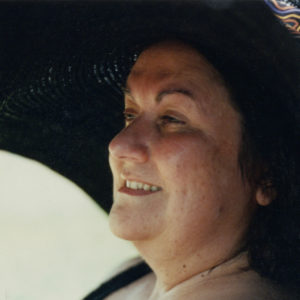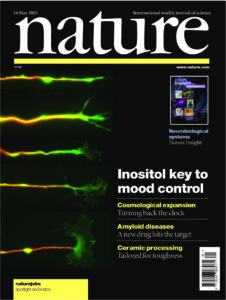BIPOLAR DISORDER CIC
Company history

The Bipolar Disorder Community Interest Company was founded in 2015 by Benjamin Mudge and his mother, Professor Anne Mudge.
Anne Mudge was working as a neurobiology research scientist at University College London, when her son Benjamin was first diagnosed with bipolar disorder in 1998. Benjamin had been wrongly diagnosed by his General Practitioner doctor and prescribed an SSRI antidepressant pharmaceutical called paroxetine that induced a manic episode. When Benjamin complained about side-effects from the SSRI, the doctor doubled the prescription dose and then Benjamin’s mania developed into dangerous and psychotic symptoms that warranted forced detention in a psychiatric hospital. Benjamin was forcibly medicated with antipsychotic drugs such as stelazine that caused such sedation and dysphoria, and a series of other prescriptions over several months made it impossible for Benjamin to work, and he had to withdraw from his PhD studies.

It became obvious to both Anne and Benjamin that the psychiatrists and doctors do not have an intelligent systematic protocol for diagnosing and treating manic depression, and that bipolar patients are at the mercy of whatever education and personal preference their medical professional has. Furthermore, there was no scientific theory of the mechanism of manic depression being applied to the diagnosis and treatment strategies. Anne Mudge had an understanding of basic science (acquired during her PhD studies at Harvard University and further developed at the UCL Laboratory for Molecular Cell Biology) that motivated her to try to discover the neurobiological locus of manic depression, because she knew that having a theory facilitates systematic prediction and testing of treatment protocols. She read the definitive textbook about manic depression (“Manic-Depressive Illness” by Frederick Godwin and Kay Redfield Jamison), and then asked her manic-depressive son his explanation of his condition. The “FM Compressor Analogy” of bipolar disorder was first postulated by Benjamin Mudge in 1999 and became the theoretical inspiration for a series of scientific experiments that Anne Mudge performed with various colleagues at the UCL Laboratory for Molecular Cell Biology, thanks to funding from the UK Medical Research Council. These experiments led to the scientific discovery of the locus of manic depression, that was published in a series of academic articles 2002-2018 in journals such as Nature and Translational Psychiatry. This major scientific breakthrough is a poignant example of why bipolar people’s subjective experience is valuable information and should not be dismissed by the objectifying lens of psychiatry.
Unfortunately, Anne Mudge’s scientific discovery has not been widely understood amongst scientists and psychiatrists – which means they are not yet benefitting from having a theoretical framework for diagnosis and treatment. While the UK Medical Research Council funded all of her original work, the Bipolar Disorder Community Interest Company is funding the education of the general public about the implications of her findings. This website intends to make this scientific information available and comprehensible to all.
 Likewise, Benjamin Mudge’s “FM Compressor Analogy” has not been widely explained to psychiatrists and bipolar patients either, which is another lost opportunity. Having had remarkable responses from bipolar people who are given an explanation of this analogy – together with guidelines about applying it to their life choices – Benjamin is motivated to make this information freely available online.
Likewise, Benjamin Mudge’s “FM Compressor Analogy” has not been widely explained to psychiatrists and bipolar patients either, which is another lost opportunity. Having had remarkable responses from bipolar people who are given an explanation of this analogy – together with guidelines about applying it to their life choices – Benjamin is motivated to make this information freely available online.
By 2015, Benjamin Mudge had been given a new PhD scholarship from the Psychiatry Department at Flinders University and was applying his subjective experience to the development of new treatment protocols for bipolar people. Meanwhile, Anne Mudge had finished her Professor role at UCL, and was struggling to finish writing her final academic paper, which included further details about the neurobiological mechanism of manic depression and the action of lithium. Together they founded Bipolar Disorder CIC with the intention of completing these projects and funding other progressive research.
Anne Mudge completed writing her final work (a collaboration with Adolfo Sairdi) just before she passed away in 2018, and it was published by Translational Psychiatry. Benjamin Mudge is in the final stages of his PhD research and speaks regularly at academic conferences on the topic of manic depression. The company has a list of new research projects which require funding to be achieved. Bipolar Disorder CIC is registered as a not-for-profit company in the United Kingdom: Community Interest Company number 09573360.
Research vision
A principle purpose of Bipolar Disorder CIC is to fund and produce scientific research and educational resources to enhance the life experience of people living with manic depression. Rather than being guided by the biases of the pharmaceutical industry and the psychiatric profession, the direction of research is to be determined by bipolar people themselves. This not-for-profit company is entirely motivated by the personal interests of bipolar people and was founded in response to the failures of the pharmaceutical industry and the psychiatric profession to develop medication protocols which enable quality of life for bipolar people.
Constitution
Bipolar Disorder CIC is an asset-locked Community Interest Company which is constitutionally bound to the following statement of purpose, which is documented by the UK Registrar of Companies. Consequently, all donations received by Bipolar Disorder CIC must be spent on achieving the following objectives:
SIC 85590 – EDUCATION
Bipolar Disorder CIC provides education for people living with Bipolar Disorder and their allies about the causes and manifestations of this condition, the avenues of medical treatment available, and strategies for cultivating self-awareness and self-management. Bipolar Disorder CIC provides education for the psychiatric and other medical professions about the subjective lived experience of people with Bipolar Disorder, including the adversities experienced by patients during treatment. Bipolar Disorder CIC provides education for the public about how Bipolar Disorder can be identified and supported within the community such that medical emergencies can be avoided. The channels of publication of this information are the website www.bipolardisorder.me and associated social media channels and YouTube videos.
SIC 86900 – MENTAL HEALTH COACHING
Bipolar Disorder CIC provides personal development coaching for people living with Bipolar Disorder and/or their allies, provided via online video meetings and other electronic communications, and group workshops.
SIC 72190 – SCIENTIFIC RESEARCH
Bipolar Disorder CIC conducts scientific research to further understand the neurobiological mechanisms of Bipolar Disorder, and the psychological and social factors which modulate the manifestation and management of this condition.
SIC 21100 – NOVEL PHARMACEUTICAL DEVELOPMENT
Bipolar Disorder CIC is developing several novel medications for the treatment of Bipolar Disorder with the intention of these being manufactured and made available to patients via medical services.
DONATE
You can support the work of the Bipolar Disorder Community Interest Company with Visa, Mastercard, American Express, Bitcoin or PayPal. All donations will be used according to the not-for-profit company constitution, and will be greatly appreciated. Click here for more information.
